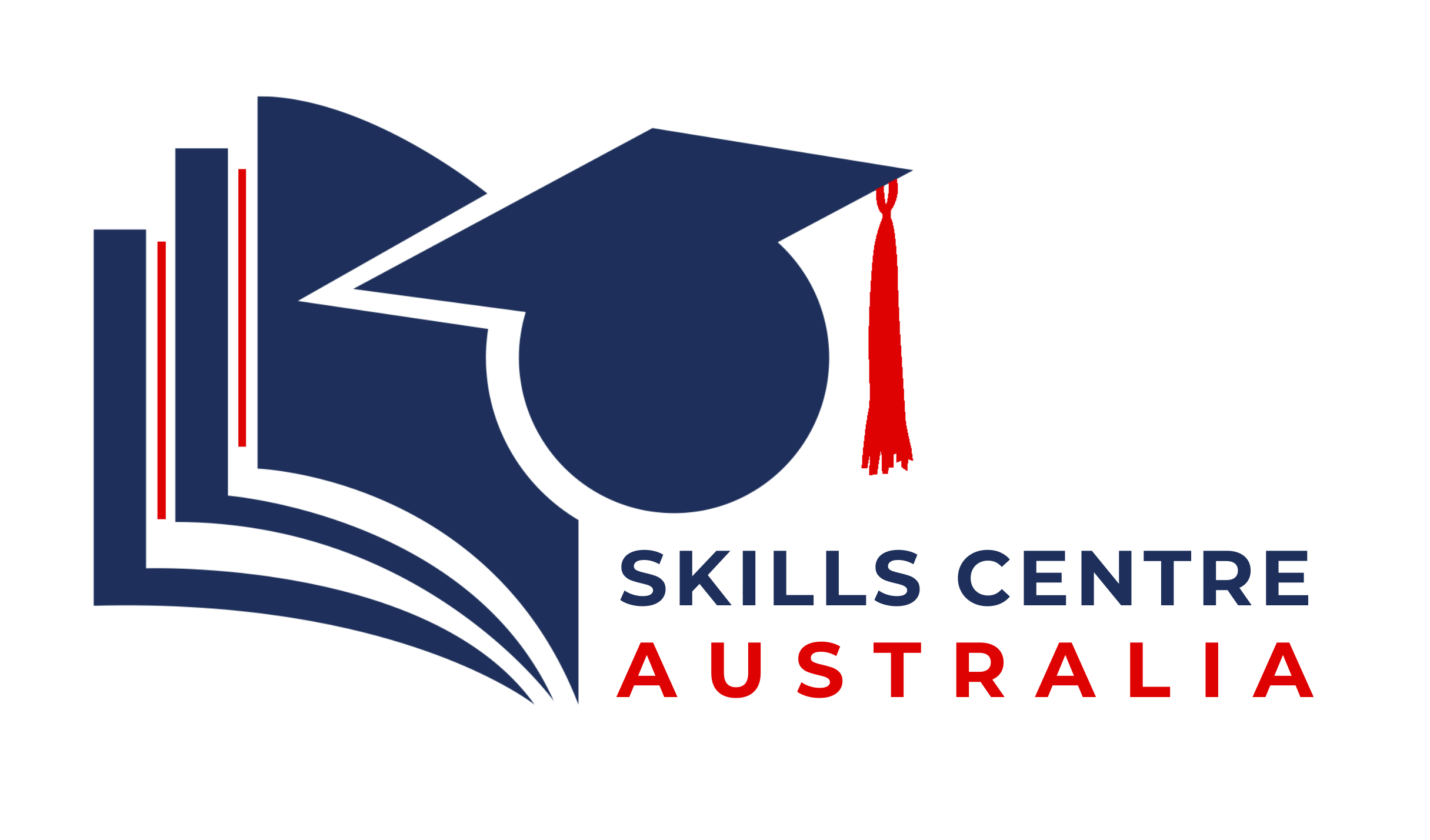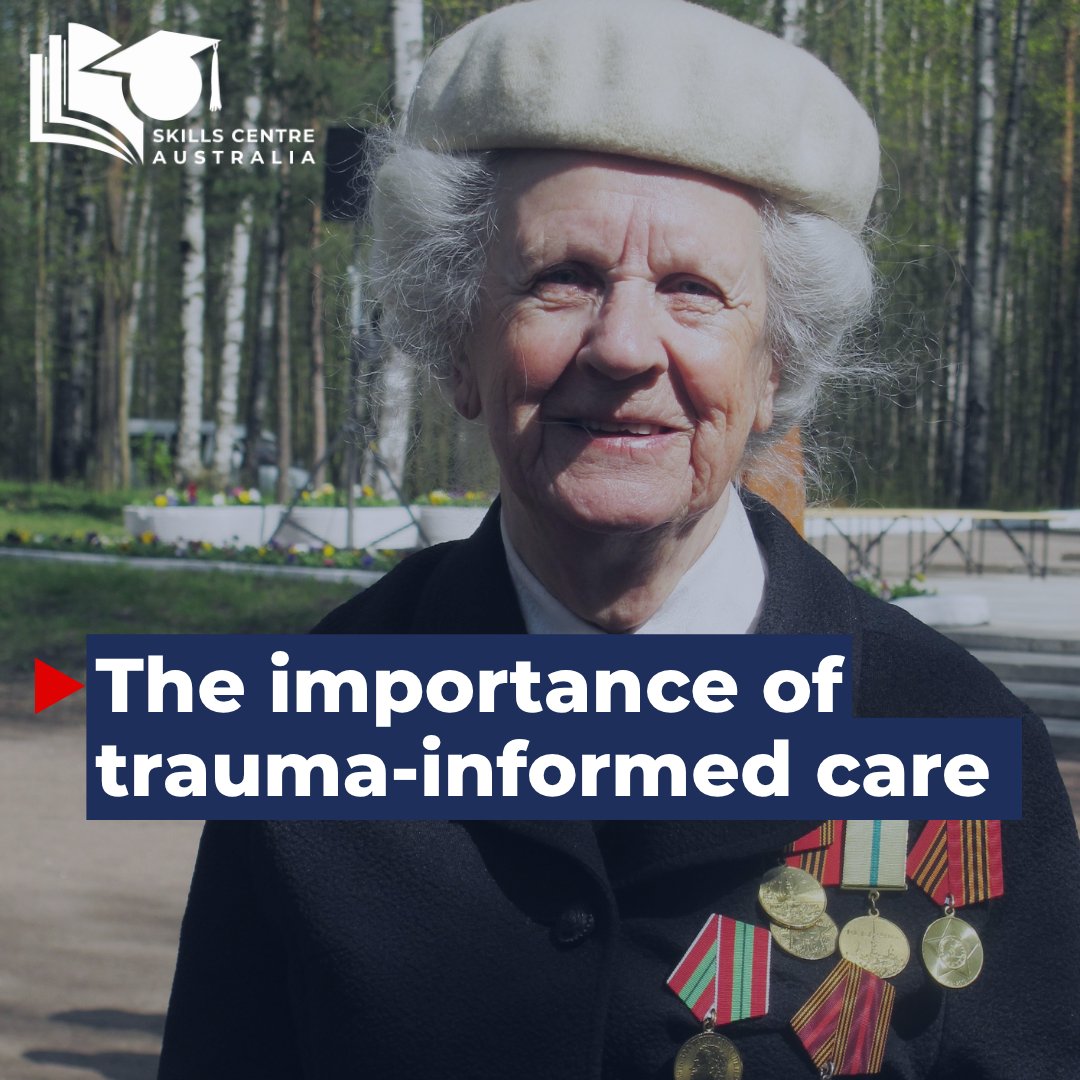As Australia pauses on Remembrance Day to honour those who served, attention also turns to the veterans who carry the invisible wounds of service. Beyond parades and memorials, there is an ongoing responsibility: ensuring the systems designed to support veterans can meet their needs with compassion and understanding. One of the most effective ways to achieve this is through trauma-informed care.
We believe this conversation is vital at Skills Centre Australia. Our role is to provide healthcare workers with technical skills, while also preparing them to deliver support that is safe, respectful, and person-centred. Trauma-informed care is a cornerstone of this approach, and veterans are among the groups who benefit most when health and community services adopt it.

Trauma-informed care (TIC) is not a specific therapy, but a framework that acknowledges the widespread impact of trauma and the role it plays in shaping people’s lives. Rather than asking, ‘What’s wrong with you?’, TIC encourages providers to ask, ‘What has happened to you?’ This approach promotes healing environments where individuals feel acknowledged and respected.
For veterans, the need for such an approach is clear. Many return from service with post-traumatic stress disorder, depression, moral injury, or complex grief. Others face the challenges of reintegration, including the loss of military identity and the complexities of navigating civilian systems. Without the right approach, these experiences can leave veterans feeling isolated and mistrustful of the very services intended to support them.
This is where trauma-informed care makes a difference. By placing safety and trust at the centre, it encourages engagement and reduces the risk of re-traumatisation. It also emphasises cultural awareness, recognising that military service brings unique experiences and perspectives that must be understood, especially in the context of care.
Some of the core elements of trauma-informed care include:
- Safety (physical, emotional, psychological)
- Trustworthiness and transparency
- Empowerment, voice, and choice
- Cultural, historical, and gender sensitivity
- Collaboration across service systems
In Australia, services like Open Arms and Phoenix Australia have long advocated for trauma-informed and military-aware care. Their models show when services are grounded in lived experience and evidence-based practices, outcomes for veterans improve significantly.
Still, there are challenges. While trauma-informed principles are widely endorsed, consistent implementation remains patchy. Training for frontline staff can be limited, and systems may not always align with the principles they promote. Research also shows a need for stronger evidence on long-term outcomes. Yet, the consensus among experts is clear: embedding trauma-informed care is a vital step forward, particularly for those who have experienced the unique stresses of military life.

This Remembrance Day, reflection should extend beyond honouring service to ensuring ongoing care. Trauma-informed care reminds us that healing is not just about treating symptoms, but about building environments of respect, safety, and understanding. For veterans, it offers a pathway of reclaiming confidence and dignity; for Australia, it reaffirms a national promise – that support does not end when service does.
At Skills Centre Australia, our Caring for Mental Health course offers foundational knowledge for supporting veterans, by covering core knowledge of mental illness, including post-traumatic stress disorder, depression, anxiety, substance use, and suicidal behaviours. It prepares learners to recognise symptoms, offer support, and apply safe communication strategies.
For more information, or to enrol, contact our friendly team today on (08) 8340 6875, email us on info@kcskillscentre.com.au, or visit our website, www.kcskillscentre.com.au.
If you or a loved one needs help, contact:
- Triple-0 if immediate care is needed
- Lifeline on 131 114
- Kids Helpline on 1800 551 800
- Beyond Blue on 1300 224 636
- 13 YARN on 13 92 76
- Suicide Call Back Service on 1300 659 467
- MensLine Australia on 1300 789 978
- SANE on 1800 187 263

